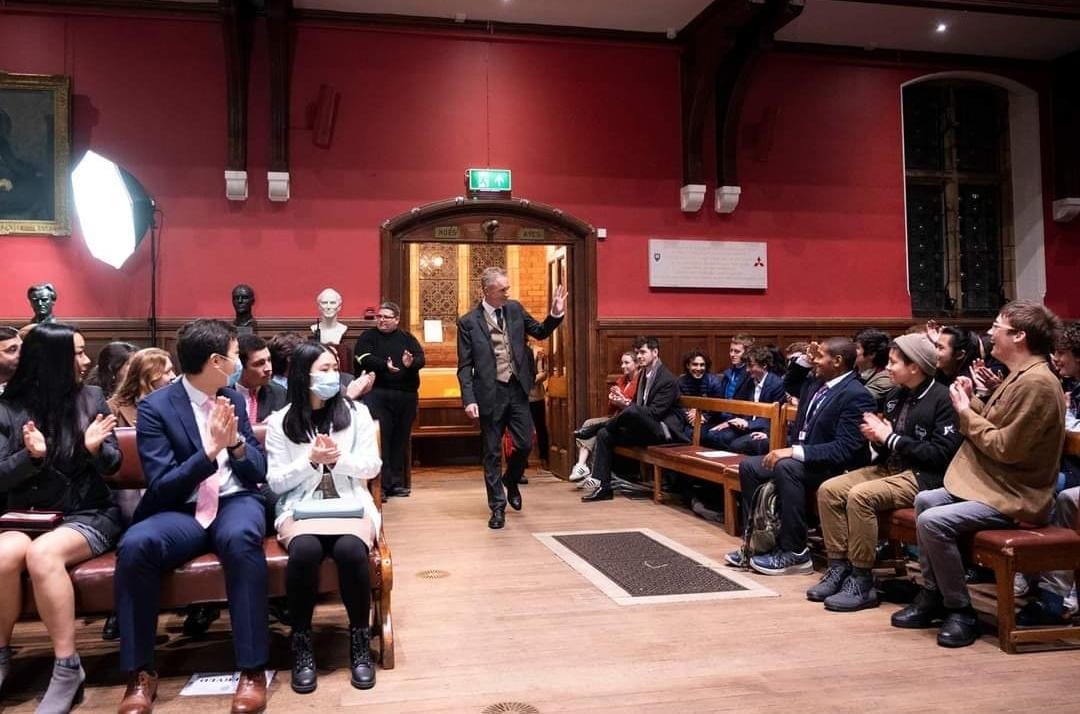Two Questions for Jordan Peterson
Since Jordan’s last visit to Oxford, I’ve noticed a shift in his narrative and approach. I wonder what he’d make of the following two questions.
Just over three years ago, during my first term as an undergraduate, I attended an event which hosted Jordan Peterson at the Oxford Union. This evening, he will be returning to Oxford for another talk. In advance, I have submitted two questions to the Union, which I am hopeful might be asked during the interview. Doubtless there will be many questions, and mine may not be asked, but here they are.
I’ve seen you be asked this question many times before, but you have never really given a clear cut answer, so I’ll try to frame this question specifically within the context of your previous statements about the issue. It seems like you believe that ultimately somewhere, Hume’s value-fact distinction can be bridged, and that ultimately this as yet uncovered bridge is the foundation of morality and something which we should see as divine. But the word divine carries with it a sense of imposition by an all powerful, omniscient being. Do you mean to say that this is where morality originates from, or are you using the word divine as analogous to profound?
Is there a conflict between your past claims concerning freedom of expression, your opposition to totalitarian restrictions on the way in which people choose to live their lives and some of your more recent claims that, for instance, gender surgeons should be imprisoned, certain books and topics should not be open to being debated in schools, and that grown adults should not be allowed to consent to modifying their own bodies according to their self perception? Even if you personally think that these ideas and ways of living are mistaken, is this not a swing too far the other way? And just in terms of effectiveness, do you think this type of rhetoric will really bring about the outcomes you see as desirable?
We’ll see what comes of the event.




